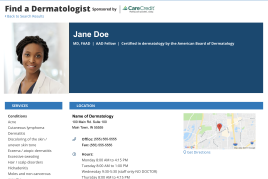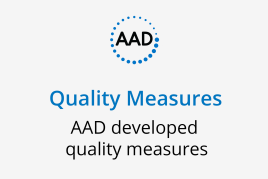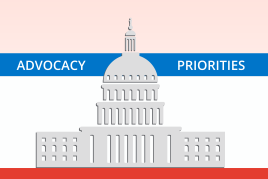Membership
Featured
 Make it easy for patients to find you.
Make it easy for patients to find you.
Update your Find a Dermatologist profile, the Academy's directory that's visited by over 1 million people a year.
 Meet the new AAD
Meet the new AAD
Learn about the Academy's efforts to refocus its brand on education, advocacy, member-centricity, and innovation.
Meetings & Education
Featured
 2022 AAD VMX
2022 AAD VMX
This May, AAD VMX will launch with over 100 hours of on-demand sessions covering the scope of dermatology. Registration is open!
 AAD Learning Center
AAD Learning Center
Explore the Academy's new and improved Learning Center, with enhanced ease of use for the education you trust.
Practice Management
Featured
 Need coding help?
Need coding help?
Find practical guidance on coding issues common in dermatology practices.
 Reduce burdens
Reduce burdens
Learn how to reduce burdens with health tech.
Clinical & quality
Featured
 Clinical guidelines
Clinical guidelines
Review current clinical guidelines, those in development, and guidelines that the AAD has collaborated on.
 Why use AAD measures?
Why use AAD measures?
The Academy has developed quality measures to help your dermatology practice.
Publications & apps
Featured
 Latest news
Latest news
Read this month's top stories in Dermatology World.
 New insights
New insights
Check out DermWorld Insights & Inquiries for the latest updates from Dr. Warren Heymann
Career development
Featured
 Combat burnout
Combat burnout
Access tools and practical guidance in evaluating and overcoming personal and staff burnout.
 Joining or selling a practice?
Joining or selling a practice?
Get help to evaluate what practice model fits your needs, as well as guidance on selling a practice.
Advocacy
Featured
 Advocacy priorities
Advocacy priorities
Learn about the Academy's advocacy priorities and how to join efforts to protect your practice.
 Promote the specialty
Promote the specialty
Access resources to help you promote the specialty in your community and beyond.
